
Bio
Lisa acts as a contact point for faculty and students regarding student related matters. She coordinates everything from admissions to graduation and all that comes in between.
Projects
Courses

Lisa acts as a contact point for faculty and students regarding student related matters. She coordinates everything from admissions to graduation and all that comes in between.

RES Program Support
AERL Building (Aquatic Ecosystems Research Laboratory), Room 429
2202 Main Mall
Vancouver, BC V6T 1Z4
Canada
6048229249

Tony came to UBC in 1971 as a founding member of the Westwater Research Centre. In 1982 he became a faculty member in the School of Community and Regional Planning (SCARP) and later in the Institute for Resources, Environment and Sustainability (IRES). From 1999 to 2006 he was the Director of SCARP. In 2007 he was elected a Fellow of the Canadian Institute of Planners (FCIP).
Tony’s research and teaching have had three foci: (i) policies and institutional arrangements for natural resources planning and management with particular emphasis on water; (ii) negotiation and mediation in sustainability governance; and (iii) the planner for tomorrow – what should be her/his knowledge, skills and attitudes so as to be more successful in turning economic, environmental and social sustainability ideas into action.
During more than three decades, he has undertaken research on the design of policies and institutional arrangements for waterfront development; pollution control; watershed, estuary and coastal zone management; development of fishery-mariculture industries; conflicts between the forest industry, fisheries, and recreation; dam building and operations; and offshore oil and gas development. Case studies have focused on Canada’s West Coast, Fraser River Basin, Greater Vancouver and, internationally, Australia and Europe. Developing the use of negotiation and mediation and design of sustainability governance have been continuing interests in this research.
He was a member of the B.C. Round Table on Environment and Economy (1990-94) and the inaugural Chair of the Fraser Basin Management Board (1992-94). During the late 1990s he was a facilitator/mediator for global multistakeholder dialogues for the World Commission on Dams and the World Bank’s forestry policy.
For more information on all his activities and details of the six courses he teaches please go to tonydorcey.ca
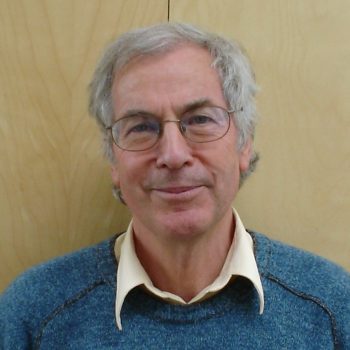
Professor Emeritus
http://www.landfood.ubc.ca/directory/faculty/alt/hans-schreier
Hans Schreier was born in Basel, Switzerland. After receiving a Diploma in Organic Chemistry in Basel, Switzerland, in 1961, he proceeded to the University of Colorado ,Boulder, where he obtained a BA in Physical Geography in 1969. Further studies at the International Institute of Aerial Surveys and Earth Sciences, Enshede , Netherlands , led to the award of a Diploma in Air Photo Interpretation/Photogrammetry and Remote Sensing (distinction) in 1972. Graduate studies led to the award of an MSc in Geomorphology and Resource Management from the University of Sheffield, UK, in 1973 and a PhD in Geomorphology from UBC in 1976.
After two years as a postdoctoral fellow in the Department of Soil Science, Dr Schreier was appointed Assistant Professor associated with the Land Resource Science group in 1979 to teach courses on soil and watershed management and on soil and land evaluation and to conduct research in these areas. His research reflects his specialization in three areas: land evaluation, soil processes and water chemistry, with a particular interest in land/water interactions. His projects include watershed analysis (system dynamics, simulation modeling), geographic information systems (GIS), land/water interactions (land use and its impact on water resources), non-point source pollution and cumulative effects, water and soil quality and pollution (excess nutrients, trace metals, sediments), geomorphologic and pedagogical processes, and land degradation processes and rehabilitation. He has conducted research projects in Lower Fraser Valley of BC, the Himalayas (Nepal Bhutan and China and the Andean Mountains (Columbia, Bolivia).
In 1996 Dr Schreier was honoured by the International Development Research Centre (IDRC, Ottawa) for significant contributions to science in the developing world. His contributions cited were the effective use of computer and GIS techniques in mountain resource management in Nepal. He was one of only five Canadian researchers given the award during IDRC’s 25th anniversary celebration. Further awards in 1999 included a New Zealand Manaaki Tangata Fellowship to allow him to undertake landcare research in Hamilton and Auckland, New Zealand and for a lecture tour and workshops on integrated catchment management research (November 1999). That same year the IDRC awarded Dr Schreier a Senior Sabbatical Fellowship to allow him to review the Asia program and assist IDRC project teams in the Andes and Himalayan region in using internet and multi-media communication tools in their research and to identify future research priorities. He was recently invited to deliver keynote addresses on watershed management topics at the Kyoto Water Forum in Japan (UNESCO, 2003), at the Kovacs Colloquium (UNESCO, Paris, 2004) and Integrated Watershed Symposia (FAO: Sardinia , 2003; Rome, 2004, and Cracow, Poland, 2004).

SHE/HER/HERS
Associate Professor, IRES
Associate Professor, Psychology
Canada Research Chair (T2, Behavioral Sustainability)
UBC Sauder Distinguished Scholar
AERL 437
jiaying.zhao[at]ubc.ca
Website: http://zhaolab.psych.ubc.ca
Google Scholar: https://scholar.google.ca/citations?user=w6d1YTgAAAAJ&hl=en
What is psychology good for? How can psychology contribute to sustainability? To answer these questions, Dr. Zhao aims to use psychological principles to design behavioral solutions to address sustainability challenges. This approach offers insights on how cognitive mechanisms govern human behavior, and how behavioral interventions can inform the design and the implementation of public policy. Dr. Zhao is currently examining the cognitive causes and consequences of scarcity, what behavioral interventions improve the performance in low-income individuals, how to promote recycling and composting behavior, water and energy conservation, what cognitive, motivational, and sociocultural factors shape the perception of climate change, and how to engage the public on biodiversity conservation.
Pronouns: she/her/hers
A hallmark of sustainability is the balance between demand (i.e., how much is needed) and capacity (i.e., how much is available). In this line of work, Zhao and her group examine the cognitive and behavioral consequences of resource scarcity where demand exceeds capacity, with the goal of explaining why low-income individuals engage in counter-productive behaviors that perpetuate the condition of scarcity.
Zhao’s work with the Foundations for Social Change showed the impacts of an unconditional cash transfer of CAD $7,500 to individuals experiencing homelessness: recipients spent 99 fewer days homeless, increased their savings, and saved society an average of $777 each by spending less time in shelters.
Dwyer, R., Palepu, A., Williams, C., Daly-Grafstein, D., & Zhao, J. (2023). Unconditional cash transfers reduce homelessness. Proceedings of the National Academy of Sciences, 120, e2222103120.
Dwyer, R., Stewart K., & Zhao, J. (2023). A comparison of cash transfer programs in the Global North and South. Cash Transfers for Inclusive Societies: A Behavioral Lens. University of Toronto Press.
Zhao, J., Datta, S., & Soman, D. (2023). Cash Transfers for Inclusive Societies: A Behavioral Lens. University of Toronto Press.
Larsen, V. J.*, Carriaga, R.*, Wething, H., Zhao, J.* & Hall, C. C.* (2023). Behavioral consequences of income and expense shocks. Journal of Behavioral and Experimental Economics, 106, 102067. (joint first or senior authors)
Drouin, O., Perez, T., Barnett, T.A., Ducharme, F., Fleegler, E.W., Garg, A., Lavoie, K.L., Li, P., Métras, M., Sultan, S., Tse, S.M., & Zhao, J. (2023). Impact of unmet social needs, scarcity and future discounting on adherence to treatment in children with asthma: Protocol for a prospective cohort study. JMIR Research Protocols, 12, e37318
Hay, H., Dyce, A., & Zhao, J.(2023). Giving money to unhoused people is good, actually. The Georgia Straight. (Editor reviewed)
Zhao, J., Woo, Y. P. & Whitehead, L. (2023). Artificial intelligence + Basic income = Canadian innovation. Policy Options. (Editor reviewed)
Zhao, J. & Whitehead, L. (2022). A guaranteed basic income could end poverty, so why isn’t it happening? The Conversation. (Editor reviewed)
A challenge for conservation is that people are often unaware of the amount of resources being used. To address this issue, Zhao’s group uses real-time visual feedback to reduce water and electricity consumption in residential and office buildings. In addition, they examine how preferences, attitudes, and messaging determine public actions to conserve biodiversity. To increase recycling and composting rates, Zhao’s group is currently conducting a series of field experiments that examine the role of convenience, signage, and knowledge in sorting behaviors.
Luo, Y. & Zhao, J. (2023). Using behavioral interventions to reduce single-use produce bags. Resources, Conservation & Recycling, 193, 106942
Luo, Y., Douglas, J., Pahl, S., & Zhao, J. (2022). Reducing plastic waste by visualizing marine consequences. Environment & Behavior, 54, 809-832.
Habib, R., White, K., Hardisty, D., Zhao, J. (2021). Shifting consumer behavior to address climate change. Current Opinion in Psychology, 42, 108-113.
Wu, D., Lenkic, P., DiGiacomo, A., Cech, P., Zhao, J., & Kingstone, A. (2018). How does the design of waste disposal signage influence waste disposal behavior? Journal of Environmental Psychology, 58, 77-85.
Zelenika, I., Moreau, T., & Zhao, J. (2018). Toward zero waste events: Reducing contamination in waste streams with volunteer assistance. Waste Management, 76, 39-45.
Environmental actions can be driven by how people perceive their impact on the environment. In this line of work, Zhao’s group examines how people perceive their carbon footprint and how the carbon price tag of individual behaviors influences climate actions. They are developing a motivated attention framework to examine how people with different ideologies perceive climate change evidence, and what cognitive, motivational, and sociocultural factors shape the prioritization and the interpretation of climate evidence. This helps inform the communication of climate science.
Sörqvist, P., Volna, I., Zhao, J., & Marsh, J. (2022). Irregular stimulus distribution increases the negative footprint illusion. Scandinavian Journal of Psychology, 63, 530-535.
Wu, J., Hauert, C., Kremen, C., & Zhao, J. (2022). A framework on polarization, cognitive inflexibility, and rigid cognitive specialization. Frontiers in Psychology, 13:776891.
Wynes, S., Zhao, J., & Donner, S. (2020). How well do people understand the climate impact of individual actions? Climatic Change, 162, 1521-1534.
PSYC 421 Environmental Psychology

Robin Gregory is Senior Research Scientist with Decision Research in Eugene, Oregon and Adjunct Professor at the University of British Columbia, Institute for Resources, Environment and Sustainability. He works on problems of policy and risk analysis, stakeholder consultation, environmental and adaptive management, prevention of genocide and mass atrocities, choice under uncertainty, and community and indigenous health assessment. Clients include government departments in the US and Canada, international organizations, NGOs, and a variety of programs and agencies interesting in improving the decision-making skills of their members. His research and applied work emphasizes collaborative decision-aiding approaches that help participants to understand their own and others’ responses to the consequences of actions characterized by multiple dimensions, substantial uncertainty, and often controversy. In such cases, defensible choices need to be made across different options; the use of structured decision methods can serve as the basis for generating better alternatives and for creating more broadly accepted options. Robin has written and consulted extensively on the subject of informing public policy choices and is first author of the book “Structured Decision Making: A Practical Guide to Environmental Management Choices” (Wiley-Blackwell Press, 2012). He has a BA in Economics from Yale University, an MA from the University of British Columbia in Natural Resources Management, and an interdisciplinary PhD from UBC in Psychology, Ecology, and Economics.
Robin Gregory, Philip Halteman, Nicole Kaechele, Terre Satterfield. Methods for assessing social and cultural losses. Science 381,478-481(2023).
Hagerman, Shannon, Terre Satterfield, Sara Nawaz, Guillaume Peterson St-Laurent, Robert Kozak, and Robin Gregory. “Social Comfort Zones for Transformative Conservation Decisions in a Changing Climate.” Conservation Biology 35, no. 6 (2021): 1932–43. https://doi.org/10.1111/cobi.13759.
Gregory, Robin, Philip Halteman, Nicole Kaechele, Jana Kotaska, and Terre Satterfield. “Compensating Indigenous Social and Cultural Losses: A Community-Based Multiple-Attribute Approach.” Ecology and Society 25, no. 4 (2020): art4.
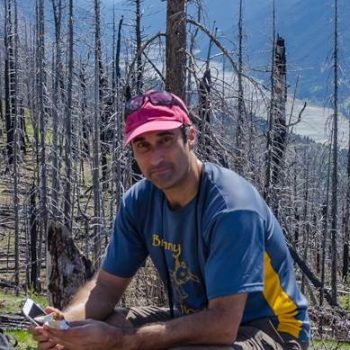
Adjunct Professor
Robin is a research scientist with World Wildlife Fund (US) and currently an Adjunct Professor in the Institute for Resources, Environment and Sustainability at UBC. He is hosted by Professor Kai Chan and is interested in ecosystem services, conservation economics, and wildlife ecology.
Google Scholar: https://scholar.google.ca/citations?user=yuqv19MAAAAJ&hl=en
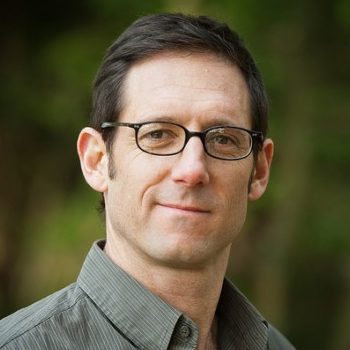
Associate Professor, Faculty of Land and Food Systems
Sean Smukler is appointed in LFS, not at IRES, and instead is a Faculty Associate of our unit. He may supervise students in our RES graduate program.
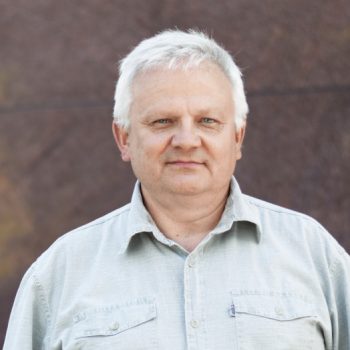
Professor, Institute for the Oceans and Fisheries
Professor, Department of Earth, Ocean and Atmospheric Sciences
Evgeny Pakhomov is not appointed at IRES and instead is a Faculty Associate of our unit. Please see appointments in left-hand column.
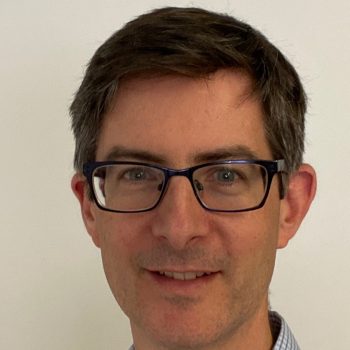
Adjunct Professor
Conor Reynolds holds an interdisciplinary PhD in Resource Management and Environmental Studies, and a Master’s in Mechanical Engineering, both from UBC. He is a professional engineer with over two decades of experience related to the science, policy, and management of air contaminants and greenhouse gas emissions. Conor is the Director of the Air Quality & Climate Action Services team at Metro Vancouver, which is the regional government that delivers services, policy and political leadership on behalf of 23 local authorities. Air Quality & Climate Action Services is responsible for the development and implementation of the Clean Air Plan, which identifies and prioritizes actions to reduce air contaminant and greenhouse gas emissions in our region this decade, as well as Climate 2050, the 30-year regional climate action strategy for the Metro Vancouver region. He is interested in interdisciplinary policy research that can drive implementation of meaningful climate action in society, in particular related to widespread adoption of smart, clean energy technologies for reducing air contaminant emissions.
Google scholar profile: https://scholar.google.ca/citations?user=FLBQhg4AAAAJ&hl=en